The next-gen speech tech that's available today
Going beyond Siri
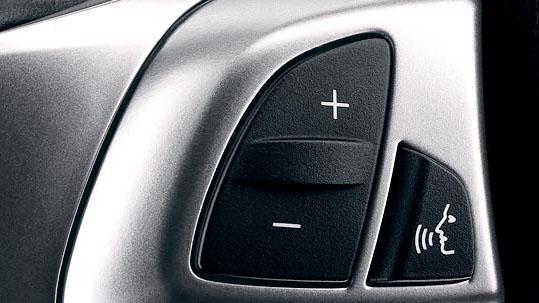
Did the world of speech technology begin and end with Apple Siri? Not if you have kept an eye on recent advancements.
While the iPhone virtual assistant can read you the weather, she is not perfect. Ask her for flight info and you'll get a blank stare.
For anything vague complex (say, "What is that local exhibit with Egyptian mummies?") and she will show you a Web page, not provide the answer.
Fortunately, speech is advancing quickly. Here are several new speech technology innovations worth investigating.
1. PixelTone
One of the most obvious improvements in speech tech has to do with natural language control. In this upcoming iPad app, which is a combined effort between Adobe Research and University of Michigan, you can speak commands like "make the image heavenly" to produce a photographic effect, or say "make John lighter" to lighten a person in the photo. The main benefit is in reducing the steps for editing and making them easier to use.
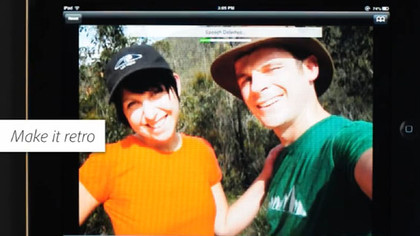
2. Interactions Virtual Assistant
Most automated customer support lines are not that automated. If you call FedEx, for example, you have to say very specific commands like "track a shipment" to get the computer to respond. Interactions has developed a natural language speech system.
So, when a customer calls, they can say a more complex phrase like "change my e-mail in my last shipment order" and the computer will respond correctly, verifying the instructions and sending a summary of the call.
Get daily insight, inspiration and deals in your inbox
Sign up for breaking news, reviews, opinion, top tech deals, and more.

3. Artificial Solutions Indigo
Recently released for Android, with a Windows Phone 8 smartphone version in the works, this personal assistant responds to questions about the weather ala Siri. But the app ties into the Google Calendar on your Android phone so you create a new meeting by speaking, then get an audible reminder before the meeting. You can also search for nearby landmarks and eateries, speak a status message, compose an e-mail and control your music.

4. Panasonic Viera WT60 HDTV
Most voice-controlled televisions offer a limited feature set. Namely, you can only say words that appear on the screen. The recently released Panasonic Viera WT60 goes much further. With speech tech provided by Nuance, the TV responds to commands for searching the Web (you can say any search string you want) and also lets you speak the name of any show to search across multiple TV guides to see when that show is airing.

5. Dragon Dictate for Mac 3
Many of the speech advancements of late have taken place on mobile devices. This new app, which allows you to dictate a longer document or e-mail, is now 15% more accurate than previous releases. The app now lets you load a pre-recorded dictation from a voice recorder and, by adjusting rules for your profile, have the speech recognizer automatically make corrections (e.g., spelling out all abbreviations you make).
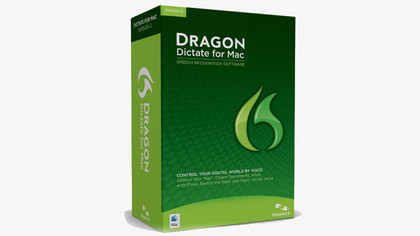
6. 2013 BMW 750 LXI with Dragon Drive and Siri Eyes Free
Using your mobile device for speech is helpful in most instances, except when you're driving. It's often difficult (or illegal) to look down at the screen to see results. This high-tech BMW uses speech in new ways. The Dragon Drive feature lets you speak any new text message or e-mail and listen to incoming messages. The Siri Eyes Free service means you can connect your iPhone 4S or iPhone 5 and use Siri. When you ask about the weather or search the Web, your phone screen automatically dims.
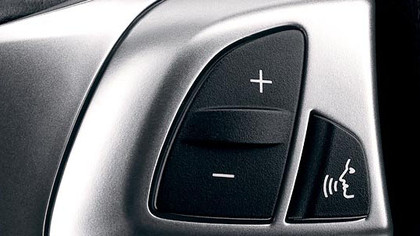
7. Google Voice Search
One of the most important improvements in speech tech has to do with the algorithms in Google Search. For the past few years, Google has steadily added new natural language search tech to their Web search on mobile device and the Web. For example, when you ask a question like "how tall is George Clooney" and then ask "what is his most recent movie" the search engine will know you are still talking about the famous actor. Google also understands context better. If you ask about a museum exhibit, Google knows you mean in your area and will return the name of the museum even though you never asked for it.
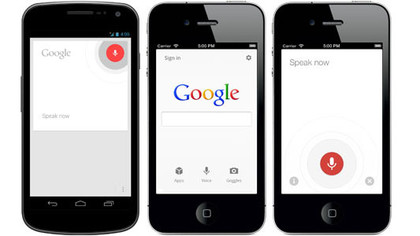
John Brandon has covered gadgets and cars for the past 12 years having published over 12,000 articles and tested nearly 8,000 products. He's nothing if not prolific. Before starting his writing career, he led an Information Design practice at a large consumer electronics retailer in the US. His hobbies include deep sea exploration, complaining about the weather, and engineering a vast multiverse conspiracy.
